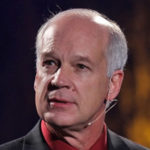“But if anyone does not provide for his relatives, and especially for members of his household, he has denied the faith and is worse than an unbeliever” (1 Timothy 5:8, ESV).
Whoa! That seems pretty harsh, don’t you think? “Worse than an unbeliever?” The old King James, as I memorized it, translates this “worse than an infidel.” Can there be any description that is lower than this? What do you think? Has Paul gotten a little carried away here? Or is he confronting us with something that the Spirit of Truth moved him to write — and to communicate it with dead seriousness?
I believe it is the latter. From the very beginning, God created everything to work — to be fruitful. He didn’t create plants to be passive objects in a pastoral scene. He didn’t create animals to simply look good roaming the garden. He charged them with being sub-creators, to bear fruit and nurture that fruit until it could, in turn, do the same. That concept is what 1 Timothy 5:8 reflects in its charge to parents.
And when God’s creatures blow that assignment off? Well, it gets pretty harsh.
Jesus cursed a fig tree because it wasn’t working. The sluggard is taken to the woodshed by numerous passages. In the parable of the talents, Jesus used some tough language for the one who buried his talent instead of using it to produce fruit. If you aren’t familiar with it, go back and read Matthew 25:14-30. The poor guy was called “wicked” and then cast into outer darkness. Wow!
Jesus told another parable about a tree that wasn’t producing fruit: The owner allowed the gardener to give it one more year, and if it still didn’t produce, cut it down.
There’s a lot of Scripture written about this.
Jesus talked about branches that didn’t bear fruit: Take them away, throw them into a fire and burn them.
Sure seems serious to me!
This warning should especially stand out to those of us who live in a culture that appears at times to preach the opposite. Many recent U.S. policies and opinions enlarge and deepen dependency and fruitlessness, and shrink the incentives of the fruitful.
But my bigger concern is what is happening in the church, in the minds and hearts of Christian young people, in regards to fruitfulness and types of work. I think the church is communicating something just as opposite.
Christian Culture
When was the last time you saw young men or women called to the front of the church to be blessed and prayed for because they had decided to become plumbers? Never. But if they decide to go to seminary or become a missionary or go into “full-time Christian work,” then and only then will we applaud them, pray for them, send them off with possibly a potluck dinner and a love offering. The plumbing student headed to a vocational school will get nothing, zippo, nada. It’s clear to all that he has settled for something far less, and it is clear to him as well.
Because of inadvertent messages like this, many, if not most, of the Christian students that I have had the privilege to engage carry a strange notion about work. When I say “work,” I’m referring to that old fogey notion of “vocation” — the effort that mankind has carried out from the beginning to tend the garden, plant wheat, raise cattle. However, in the modern vernacular of Christianity, it is often referred to as “secular” work. As in, “Well, I sure don’t want to have to go out and get a secular job.” Or, “I really want to serve the Lord, so I want to do something of value.”
When we say things like this, we imply that those who go in to the secular business world are doing something without real kingdom value and are merely “pursuing the almighty dollar,” as I have heard it often stated.
How disgusting!
This is much akin to the old gnostic error that divided the world into two realms: the material and the sacred. If you wanted to pursue God, you shunned the material world and pursued the sacred realm, usually through pious works.
I hear this often in the statement: “Well, I just want to help people” as if the truck driver isn’t. So we have again created an artificially bifurcated world: If you have a heart for God, then you work in the sacred realm. If you don’t have a heart for God or don’t want to really “go all in” or don’t really care about kingdom work, then you go into the secular realm and waste your life as a farmer or rancher or shoe maker, doing nothing for the kingdom.
Again, I say, how disgusting!
Look, I know this sounds a little hostile. I don’t really mean it to be. It’s just that we need to step back and look at what we are thinking and what we communicate to one another within the body of Christ.
Queen Bees and Drones?
When we act like there is something spiritual about “full-time” Christian ministry and something worldly about “secular” work — that in one, I am really serving Christ, and in the other, I am merely serving myself — we’re painting a somewhat crude picture. And it’s this: Those who choose to go into the cleric realm are like the queen bees of Christianity, and those who choose to go into the secular realm are like the drones. If the drones are to have any value at all, it is when — and only when — they bring the fruit of their labor into the cleric realm so that real kingdom work can be accomplished.
Most “secular-realm” Christians I have talked to about this have a drone view of their work. That’s understandable. They have been taught to think in those terms. They see no kingdom-value in their work other than when they bring their coins into the sacred coffers.
If, for example, we were to shock the stuffing out of Luigi, the local shoemaker, by telling him we wanted him to come before the church next Sunday and give testimony of how he glorifies God in making shoes, Luigi will first of all be dumbfounded. Then he will spend sleepless nights thinking of how he must talk about how he witnesses to his customers and how he has silently made a vow that he will do a better job of this and how he has just made the decision — though he won’t confess that he just made the decision — to stamp a verse on the sole of every shoe that he makes.
Why does Luigi act in such a way?
Because Luigi has been led to believe that there is absolutely nothing sacred about his work — nothing inherently glorifying to God in the simple act of making shoes.
In the words of a good friend of mine, a master puppeteer: “If I were a Christian baker, would I have to put a cross on every cupcake?”
No!
You bring glory to God when you make an excellent cupcake and sell it for a reasonable price.
You bring glory to God when you plow your field and sow it with wheat and till it and water it and fertilize it and harvest it.
You bring glory to God when you drive a truck that moves tomatoes from the field to the market.
You bring glory to God when you plumb a family’s new home.
Yes, we each have been charged to bear fruit ministerially, and we need to be involved in loving our neighbor — we are not to neglect that fruitfulness in our lives. But if God has made you to be a farmer, then that is a sacred calling in itself. Don’t try to be a pastor or go into “full-time Christian work” just because you think that is what you have to do if you love God.
Don’t let anyone belittle your “secular” calling. And don’t turn your back on your “secular” talents because you think that there are some spiritual brownie points to be made in the “sacred” realm.
If you were made to drive trucks, I don’t want you in the pulpit.
And for goodness’ sake! If you are called to full-time Christian work, then you’d better be there. But if you do, make sure you don’t dis, directly or indirectly, those who are called to the very sacred task of making shoes. God smiles on Luigi as broadly as He smiles upon you.
Copyright 2014 Del Tackett. All rights reserved.












